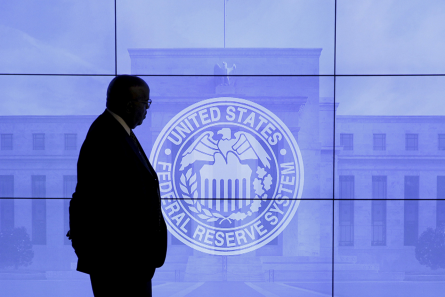Fed minutes hint at "shrinking balance sheet"
After several senior Fed officials, including Fed Chairman Powell, released a strong signal that the Fed may raise interest rates by 50 basis points at a time in the future, the minutes of the Fed’s meeting also revealed for the first time that the Fed’s policymakers plan to shrink the balance sheet in the future (shrinking the balance sheet). Table) roadmap, paving the way for the reduction of the balance sheet to more than $1.1 trillion in one year.
The minutes show that at the March meeting, several Fed officials believed that if inflation and economic conditions required, one or more interest rate hikes by 50 basis points may be required in the future; The last time the balance sheet was shrinking was fast, and it planned to reduce the size of its holdings by as much as $95 billion per month, almost double the monthly maximum size during the last time the balance was reduced; policymakers agreed that loose money needs to be quickly Policy stance turns neutral; Fed worries about loss of public confidence in Fed's ability to defuse high inflation.
If the Fed moves quickly to neutral, and recession and market dislocations are imminent, the Fed may be forced to end monetary tightening well short of its target, adding to fears of a loss of public confidence.
Gold prices, however, are likely to continue to rise over the next two quarters as the Fed is not raising rates fast enough to fight high inflation The U.S. dollar surged to a near two-year high on expectations, while gold’s appeal waned.
The de-dollarization process is accelerating
The pace of global de-dollarization has been accelerating in recent years, and with the U.S. “weaponizing” the U.S. dollar in sanctions against Russia, this trend may intensify, further stimulating the need to develop alternatives to the U.S. dollar.
The International Monetary Fund's first vice-president Gopinath has previously warned that sanctions by the West to confiscate the U.S. dollar and euro reserves held by the Russian central bank may be counterproductive and lead to the collapse of the international monetary system.
Kenneth Rogoff, a professor of economics at Harvard University, also said recently that the weaponization of the dollar could end its dominance as the world's reserve currency within 20 years. Rogoff warned that the U.S. move to close or freeze Russia's central bank reserves is absolutely historic. This precedent could accelerate changes in the international financial system and weaken the dollar's competitiveness.
It is true that debt monetization relieves the United States of its sovereign debt default risk concerns. Large-scale money printing can not only collect excess seigniorage around the world, but also meet the excessive and excessive consumption needs of American society, and can also save the economic crisis.
However, the consequences of exporting the risk of inflation, the risk of the financial system, and the risk of asset “bubbles” to the world have caused market concerns about the value and status of the dollar to continue, and the reckless use of its currency hegemony sanctions by the United States over the years has been inconsistent with its strategic actions. Countries that cooperate with each other, causing major economies to have quarrels with them
A regional financial order is taking shape
Since the collapse of the Bretton Woods system in 1973, the US dollar has maintained its dominance without the support of a global exchange system arrangement. However, as Dmitry Medvedev, Vice Chairman of the Russian Federation Security Council said, "Abandoning the use of the US dollar and the euro as the world's reserve currencies is no longer a distant fantasy. The era of regional currencies is coming, and the world's major powers need to agree on a new financial order." .
From the perspective of the evolution of the international monetary system, the key to improvement is the "anchor" of currency pricing. A stable currency value is the cornerstone of the monetary system. As far as the current situation is concerned, there may be four alternatives to globalized national currencies: cryptocurrency (such as Bitcoin), commodity currencies (such as gold and commodities), global fiat currencies (such as the IMF’s Special Drawing Rights), or another national currency other than the U.S. dollar (such as the Chinese yuan).
Cryptocurrency, also known as cryptocurrencies, belongs to the category of virtual currency. It is a medium of exchange that uses cryptographic principles to ensure transaction security and control the creation of transaction units. However, cryptocurrencies have unique risks, such as loss of hardware, loss of passwords, hacker attacks, and fraud. and blackmail.
As for the monetary system anchoring gold and commodities, Zoltan Pozsar, a well-known currency scholar on Wall Street, believes that the world is entering the "Bretton Woods System III", that is, an international monetary system supported by gold and commodities, and the world is returning to "commodities". currency" era.
However, we must admit that the gold standard has been proven by history to be unacceptable. After all, the economic system cannot be forever bound by gold, a commodity with random production. Due to the limitation of quantity, gold cannot take over the huge volume of global trade today and in the future. At most, it can undertake a small part of the functions of transaction, reserve, clearing and settlement.
In the absence of global integrated governance, the reform of the international monetary system may more likely still need to be advanced on the basis of national or regional sovereign currencies.
 2022-04-07
2022-04-07
 1093
1093





 简体中文
简体中文
 ภาษาไทย
ภาษาไทย
 繁體中文
繁體中文
 Indonesia
Indonesia











